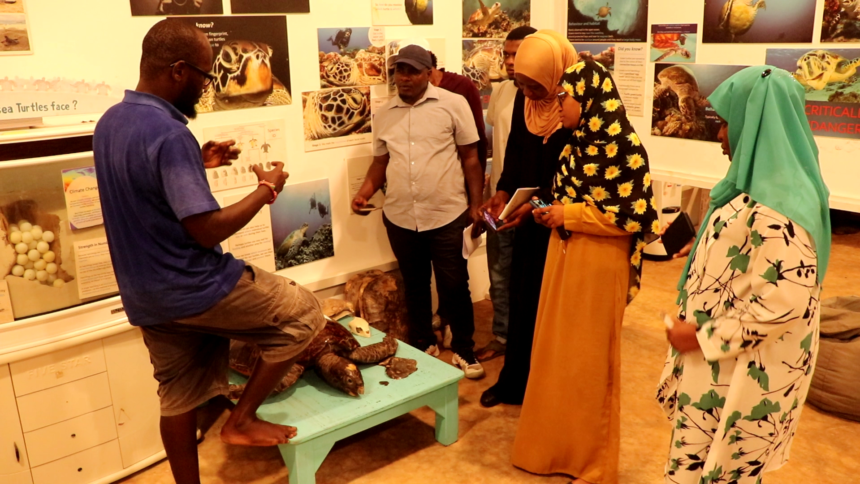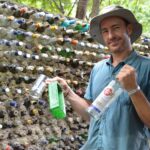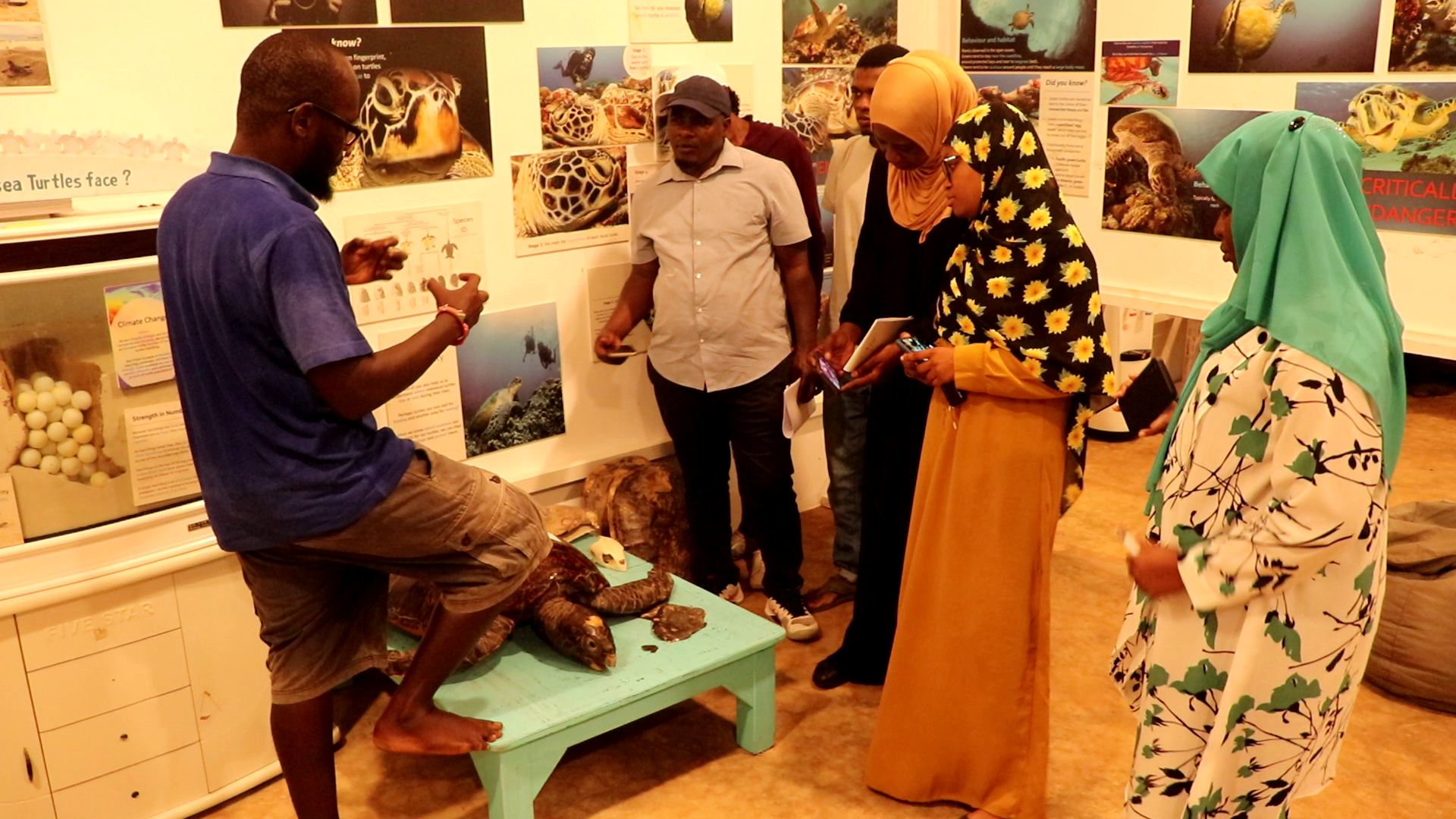
By Steve Mokaya
Neville Agesa, 25, stands between a group of journalists and a bush about the size of a basketball court, 50m from the beach. This is ground zero, the area where sea turtles love to breed and nest.
It is about 5 pm, and rains are competing with the weak evening sun for supremacy. As the waves were slapping the shores and detonating in anger like bombs, we moved a little closer to clearly hear the story.
Unfortunately, this hallowed ground has become a poaching hot-spot for the ancient sea mariners.
“This island is pristine and hidden, thus providing a good cover for the turtle poachers. This year alone, we found eight turtle carcasses on this island,” he says.
Funzi Island, he reveals, is a favorite nesting and breeding ground for many sea turtles because it has three small beaches that are close to the ocean. However, poachers, aimed with this knowledge, lay in wait for the reptiles and kill them for their rich oil and meat.
The youthful conservationist and CEO of Africa Climate and Environment Foundation shepherds a team of eight turtle conservation cohorts in Kwale County. Their main agenda is to stop turtle deaths and protect the ones that come to the beaches to nest.
One of the groups conducts turtle anti-poaching along the coastline, especially on Funzi Island. During patrols, he and his team walk 10m from the beach for several kilometers searching for turtle carcasses.
“When we get the bodies, we record the GPS coordinates of the area. We also record the type of the turtle killed, and its height and size,” he says.
Agesa says that the work is challenging especially because of the huge need for conservationists in the vast south coast region.
He says, “It is hard to find volunteers, especially the young people who can join us to conduct anti-turtle poaching patrols. Currently the whole island has only one person who patrols ten kilometers every day.”
Besides the daily patrols, the teams also conduct educational programs for primary and secondary schools in Kwale County.
“We also get students from colleges and universities who come for a one year practical program on turtle and general conservation,” he offered.
In Diani town, the South Coast’s tourism and economic hub, we meet Dempsey Mai, the project manager at Diani Turtle Watch, a conservation group working in the community to wage war against turtle poaching and bolster their chances of survival. Mai leads a team of about a dozen young conservationists. He says besides poaching, turtles in the area are killed by boats at sea.
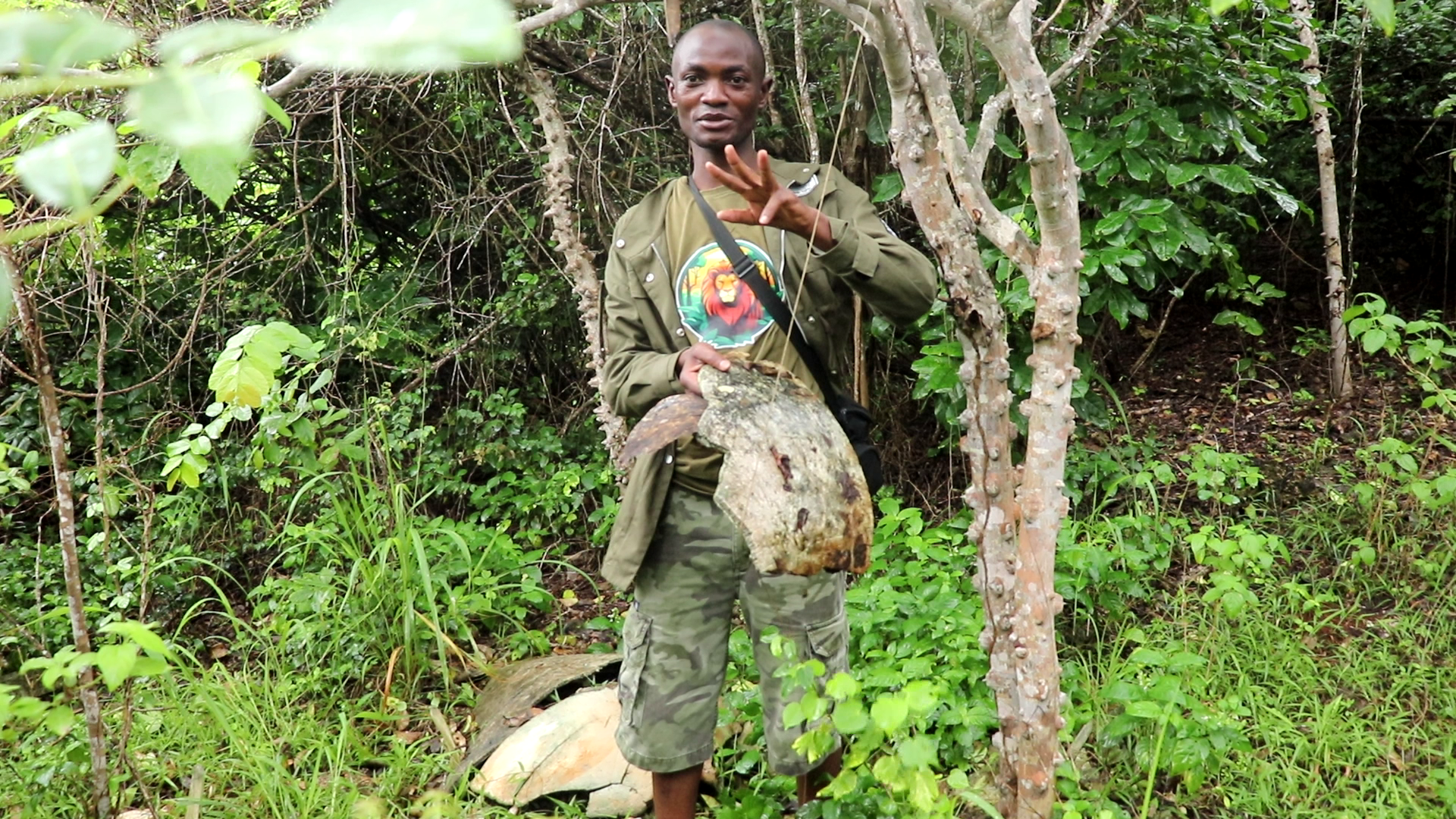
“We have found several carcasses at the shore of turtles killed by boat strikes. We usually carry the carcasses and conduct necropsy to ascertain the cause of the deaths,” he explains.
In their turtle information center, they welcome the general public, and learning institutions to learn the importance of taking care of turtles and what they can do to protect them. They have also engaged other stakeholders to collectively protect the sea creatures.
“We have partnered with the owners of beachfront businesses to set aside areas where there should not be development projects, to allow spaces for nesting and breeding,” he adds. “Sometimes we relocate the turtle eggs to safer places and guard them until they are hatched. We also partner with the KWS to do anti-poaching patrols.”
Away from the South Coast, another conservation group, Bahari Hai, is leading the war against turtle-poaching in the North Coast’s Watamu area. Ochieng Odhiambo a project officer in the NGO said one common reason communities hunt down and kill turtles is poverty, as they strive to find food.
“To counter this, we have introduced alternative means of livelihood to the communities living along the coastline in the North Coast. Some of the alternatives are beekeeping, kitchen gardening and poultry. These are meant to ease the pressure on marine resources,” Odhiambo says.
They are able to track turtles using telemetrics (satellite transmitters), and monitor their routes all the way from Kenya to Australia, Seychelles and other places. It is through this method that they identified specific migratory routes.
“We were also able to monitor where they go for foraging. Believe it or not, the turtles that breed in Kenya do not necessarily forage in Kenya. They forage thousands of miles south of Kenya. And the ones that forage in Kenya could have come from outside Kenya. That is the trend that we recently realised,” he offers.
Mohamed says Kenyan law is very strict against poaching of turtles and if found, one can get a penalty of paying a fine of Ksh 20 million or life imprisonment or both. He disclosed that the KWS has arrested some people and that their cases are active in court.
“Others have been convicted and gone behind bars,” he says.
Mohamed said humanity has a great responsibility of protecting these reptiles because they balance the ecosystem.
“For example, the green turtle not only feeds on grass but also on seaweed. So if we don’t have animals such as turtles to keep in check seaweed and seagrass, corals can be overshadowed by fast growing seaweed and algae. We have a very complex ecosystem and turtles are part of that ecosystem. If you try to take out turtles you are more likely to mess up the ecosystem. Turtles are one of the key species,” he says in conclusion.
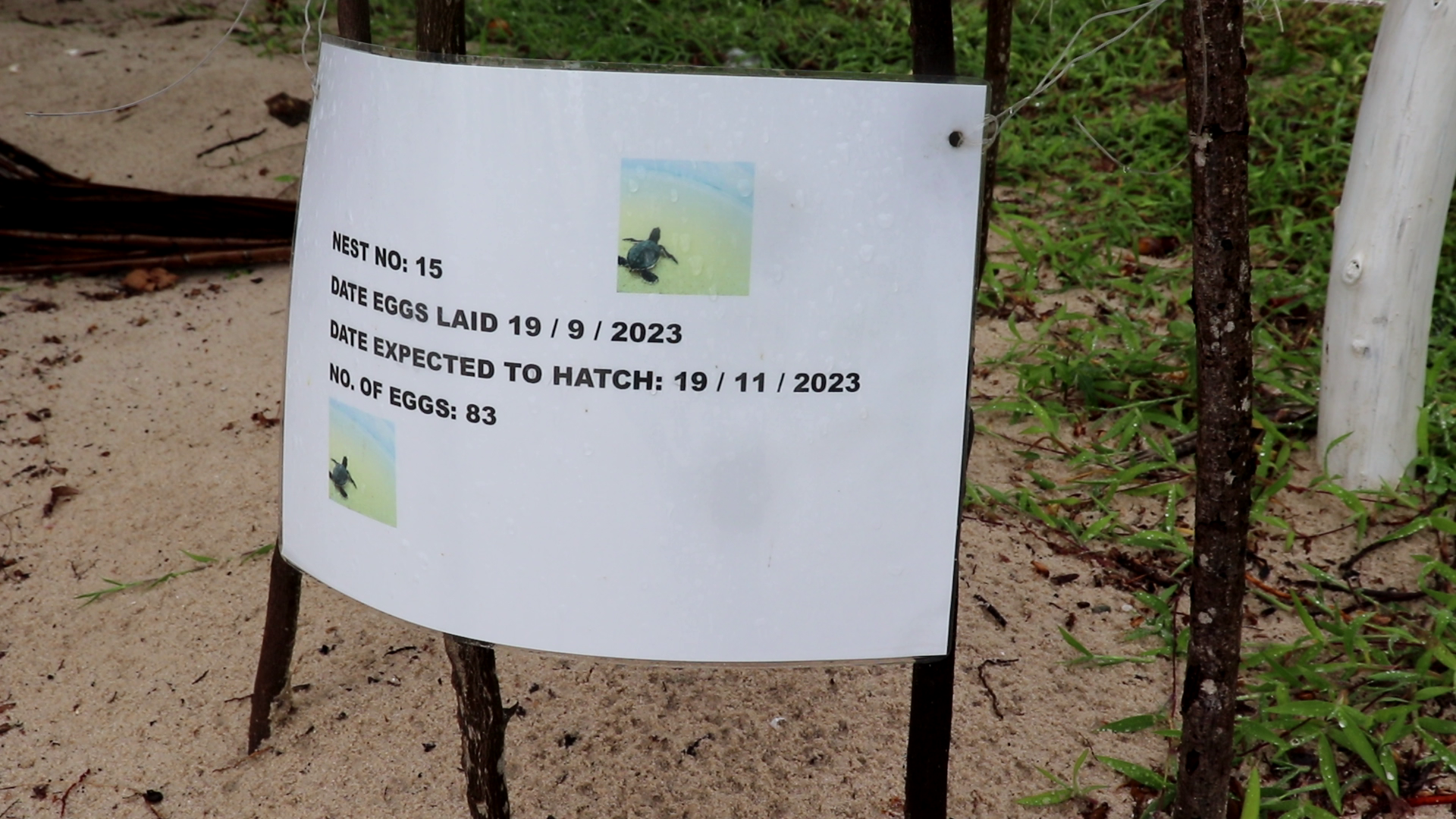
He says that invasive species are a threat to turtles’ breeding and foraging grounds. These are plants and animals that dominate an area at the expense of the entire ecosystem. Most of them are originally not native to that area.
“At the Kenyan beaches, we have two main culprits— cactus and sisals. When you have them at the beach, turtles cannot find their way to their breeding and foraging sites,” he offers.
Mohammed reveals that Kenya has five species of turtles and in its territorial waters. However, only three of them nest in the country. For example, he said, the green turtles are purely vegetarian. They feed on the seagrass while other species feed on fisheries such as sponges, crabs, or juvenile squids.
He says KWS conducts regular beach clean-ups, and sensitizes people against pollution. They are also involved in the restoration of seagrass and corals, which are a productive ecosystem and turtles feed on fisheries found there.
Their efforts are bearing fruit. Mohammed reports an 80% successful hatchlings annually.
They are able to track turtles using telemetrics (satellite transmitters), and monitor their routes all the way from Kenya to Australia, Seychelles and other places. It is through this method that they identified specific migratory routes.
“We were also able to monitor where they go for foraging. Believe it or not, the turtles that breed in Kenya do not necessarily forage in Kenya. They forage thousands of miles south of Kenya. And the ones that forage in Kenya could have come from outside Kenya. That is the trend that we recently realised,” he offers.
Mohamed says Kenyan law is very strict against poaching of turtles and if found, one can get a penalty of paying a fine of Ksh 20 million or life imprisonment or both. He disclosed that the KWS has arrested some people and that their cases are active in court.
“Others have been convicted and gone behind bars,” he says.
Mohamed said humanity has a great responsibility of protecting these reptiles because they balance the ecosystem.
“For example, the green turtle not only feeds on grass but also on seaweed. So if we don’t have animals such as turtles to keep in check seaweed and seagrass, corals can be overshadowed by fast growing seaweed and algae. We have a very complex ecosystem and turtles are part of that ecosystem. If you try to take out turtles you are more likely to mess up the ecosystem. Turtles are one of the key species,” he says in conclusion.


